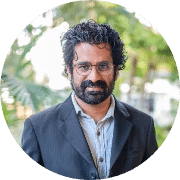15 results for Integrative doctor. Clear results

Integrative doctor
Integrative approaches to medicine have recently emerged as a new model of health care incorporating the coordinated use of conventional (biomedical) medicine in conjunction with complementary medicine (CM) therapies (1).
There are many definitions of "integrative" healthcare, but all involve bringing conventional and complementary approaches together in a coordinated way. Integrative medicine and health reaffirms the importance of the relationship between practitioner and patient, focuses on the whole person, is informed by evidence, and makes use of all appropriate therapeutic and lifestyle approaches, healthcare professionals and disciplines to achieve optimal health and healing (2,3).
The National Institute of Integrative Medicine (NIIM) emphasises the preventative focus of IM in their definition: “IM combines mainstream medicine with evidence-based complementary medicine to achieve optimal outcomes in health improvement, prevention and treatment of disease as well as patient satisfaction and wellbeing. IM places importance on illness prevention and patient wellness, including lifestyle assessment and intervention. IM encompasses a ‘whole person’ approach with a supportive and empowering patient-clinician relationship.” (4).
The term ‘IM practitioner’ in Australasia commonly refers to medical practitioners who integrates conventional medicine and CM to provide holistic, patient-centred care, often in the context of a multidisciplinary IM team (5,6). There is a scarcity of research in both Australasia and internationally describing current practice and clinical outcomes of IM (7).
An Australian multi-disciplinary stakeholder-informed definition of IM has been proposed as “a client-centred model of care provided by a team of biomedical, allied and complementary health professionals, which work collaboratively and respectfully to deliver accessible, holistic, evidence-based, personalised, coordinated care that emphasises disease prevention and health, healing and wellness promotion” (8).
References
| 1 | National Center for Complementary and Integrative Health (NCCIH). Complementary, Alternative, or Integrative Health: What’s In a Name? [Internet]. NCCIH. 2018 [cited 2021 Apr 14]. Available from: https://www.nccih.nih.gov/health/complementary-alternative-or-integrative-health-whats-in-a-name |
| 2 | NICM Health Research Institute U of WS. Understanding Complementary and Integrative Medicine [Internet]. Natalie Connor; n.d. [cited 2021 Apr 14]. Available from: https://www.nicm.edu.au/health_information/information_for_consumers/understanding_cm |
| 3 | Australian Integrative Medical Association. What is Integrative Medicine – AIMA [Internet]. 2018 [cited 2021 Apr 14]. Available from: https://www.aima.net.au/what-is-integrative-medicine/ |
| 4 | National Institute of Integrative Medicine. What is ‘Integrative Medicine’ - NIIM [Internet]. NIIM. 2021 [cited 2021 Apr 14]. Available from: https://niim.com.au/about |
| 5 | Hu X-Y, Lorenc A, Kemper K, Liu J-P, Adams J, Robinson N. Defining integrative medicine in narrative and systematic reviews: A suggested checklist for reporting. Eur J Integr Med. 2015 Feb 1;7(1):76–84. |
| 6 | Templeman K, Robinson A. Integrative medicine models in contemporary primary health care. Complement Ther Med. 2011 Apr;19(2):84–92. |
| 7 | Hunter J, Kotsirilos V, Ewer T, Molodysky E. Supporting Integrative Medicine research through an Australasian practice-based research network. Advances in Integrative Medicine. 2016 Aug 1;3(2):45–9. |
| 8 | Leach MJ, Steel A. The potential downstream effects of proposed changes in Australian private health insurance policy: The case for naturopathy. Advances in Integrative Medicine. 2018 Aug 1;5(2):48–51. |























